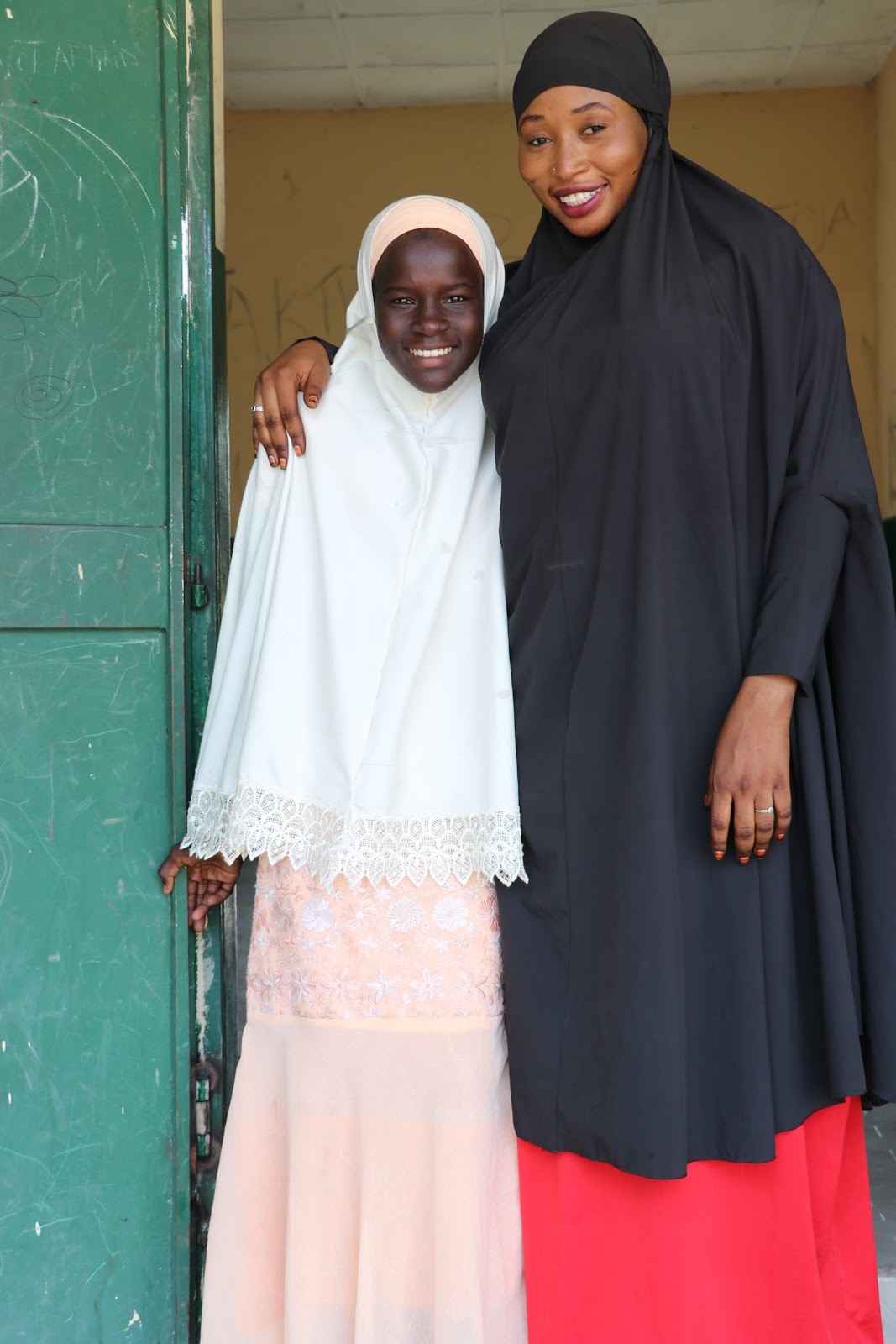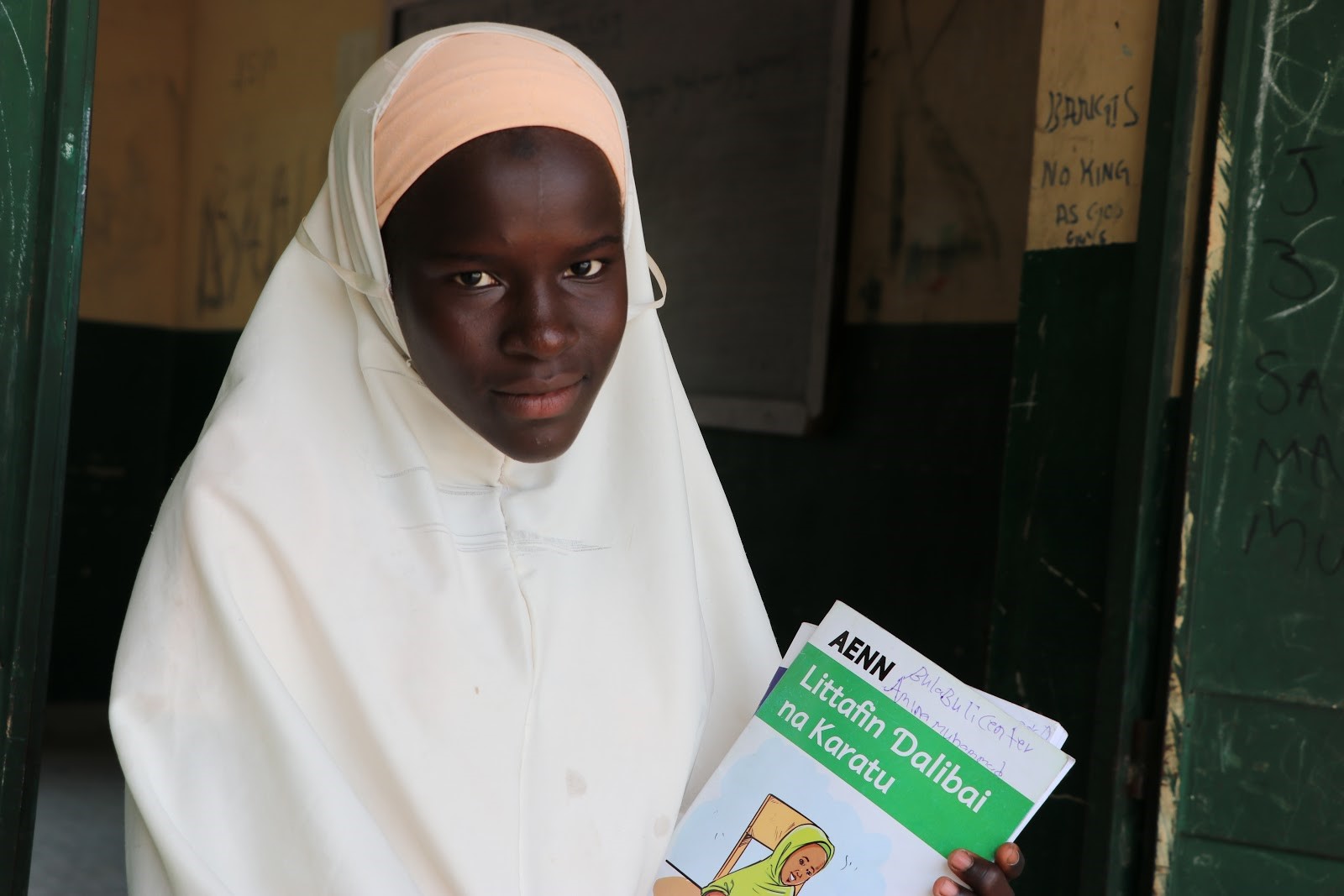Teacher Stories: Halima - Maiduguri, Nigeria
This story was collected as part of Teachers in Crisis Contexts (TiCC) Event Series to ensure that the voices and experiences of teachers working in crisis and displacement permeate all aspects of the event. For more stories, click here.
Education Provides Hope for Teachers, Students in Northeast Nigeria

Name: Halima
Role: Teacher
School: Bulabulin Primary School
Location: Maiduguri, Northeast Nigeria
Maiduguri welcomes you with a sign featuring a quote from Malala Yousafzi: “With a gun you can kill a terrorist. With an education you can kill terrorism.”
The humanitarian crisis in Borno state in Northeast Nigeria, home to Maiduguri, is acute. Ten years of conflict from armed opposition groups exacerbated existing development challenges, including access to education for children and young people – with the violence perpetrated against students and teachers throughout the ongoing crisis that number continues to increase.
Halima Abdulgani, unfazed by the threat of violence, teaches at Bulabulin Primary School in Maiduguri. In the morning and early afternoon Bulabulin operates as a formal school teacher, offering regular curriculum to those enrolled. In the late afternoon it becomes a Non-formal Learning Center (NFLC) and welcomes out of school boys and girls ages 6-15. NFLCs teach an accelerated curriculum, aiming to catch out of school children up to their peers and matriculate them into formal schools in just nine months. Many of the children attending NFLCs are internally displaced persons (IDP) who, as the crisis continues to unfold, have had to flee their homes to find safety. Many have experienced violence, trauma and loss of parents or other loved ones.
“Students come to class feeling depressed. I try to draw them close to me and provide solutions,” Halima said.
Halima believes Social emotional learning (SEL), the process through which children and adults process emotions, is a critical part of the curriculum she teaches. It is a powerful tool that helps empower children who are affected by adversity and helps them cope with trauma. At Bulabulin, “The kids get to come outside for SEL classes. They play games and are excited,” explained Halima. The games and mindfulness activities help the children relate to and connect with each other, relax and have fun.
“That is when kids feel best.” Halima said. “Seeing them happy makes me happy.”

Amina Mohammed, 12, is one of Halima’s students. She is an IDP from Ngala, a large village northeast of Maiduguri, who fled her home with her mother and seven siblings. Her father is not with them – he was killed before they were able to get to safety. Amina finds joy in school. She loves reading “Ah Bah Cha Dah,” or ABC’s in Hausa, her native language, through AENN-developed and provided materials.
Kantum Goni Idris, 14, is another student. Her experiences are similar to those of Amina. An IDP from the small village of Mainok, Kantum fled her home with her mother and five siblings. Her father was also killed.
Math is Kantum’s favorite subject. “I like calculations because if you learn calculation you learn how to solve problems,” she said.
Both girls are planning on becoming doctors in Nigeria. “This is where the problem is. I want to help solve it,” Kantum said.
Halima loves to teach. “The children are learning a lot,” Halima said. She shares a special bond with them. “When they see me in the market they run to me. This makes me feel like they will be good citizens.” She added: “I have hope.”

*FHI 360’s Addressing Education in Northeast Nigeria (AENN) project, funded by the U.S. Agency for International Development, works to provide equitable access to education for more than 300,000 children in the region.
The views expressed in this blog are the author's own.



